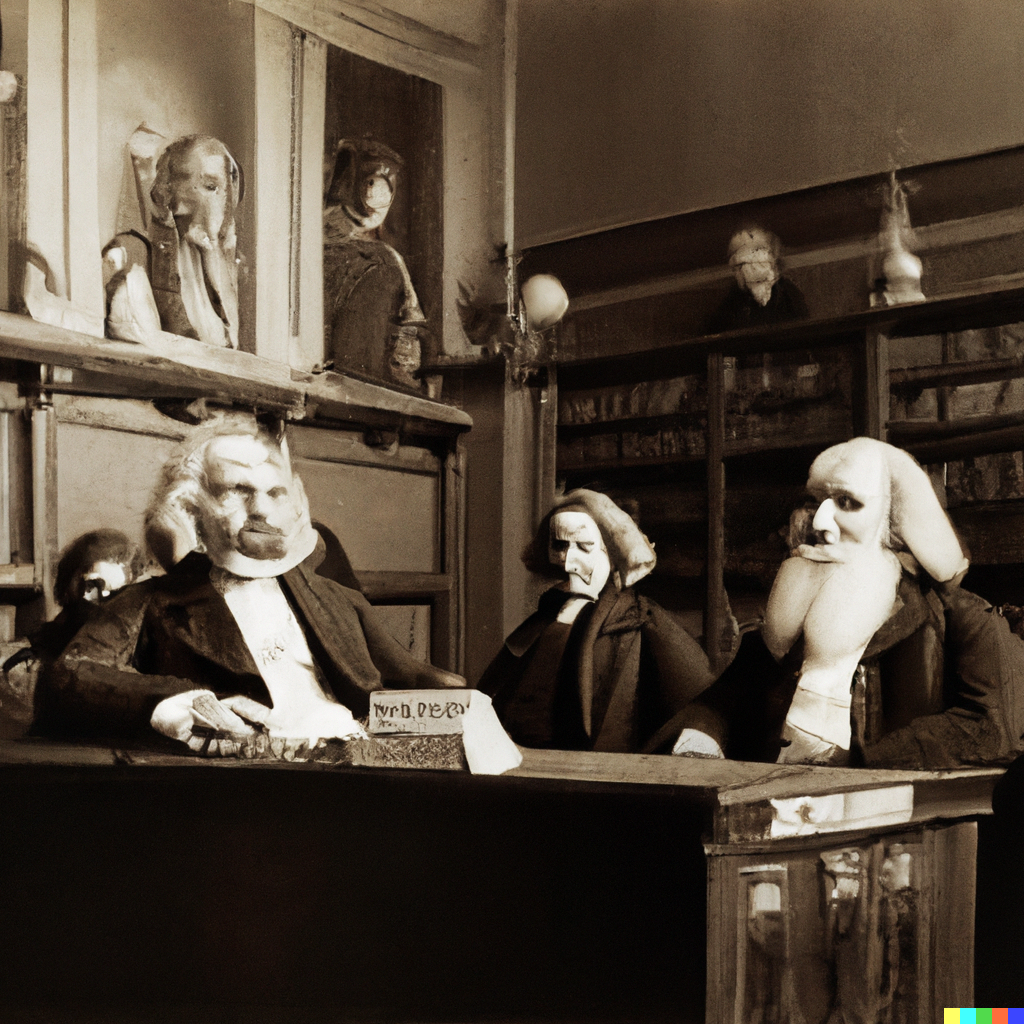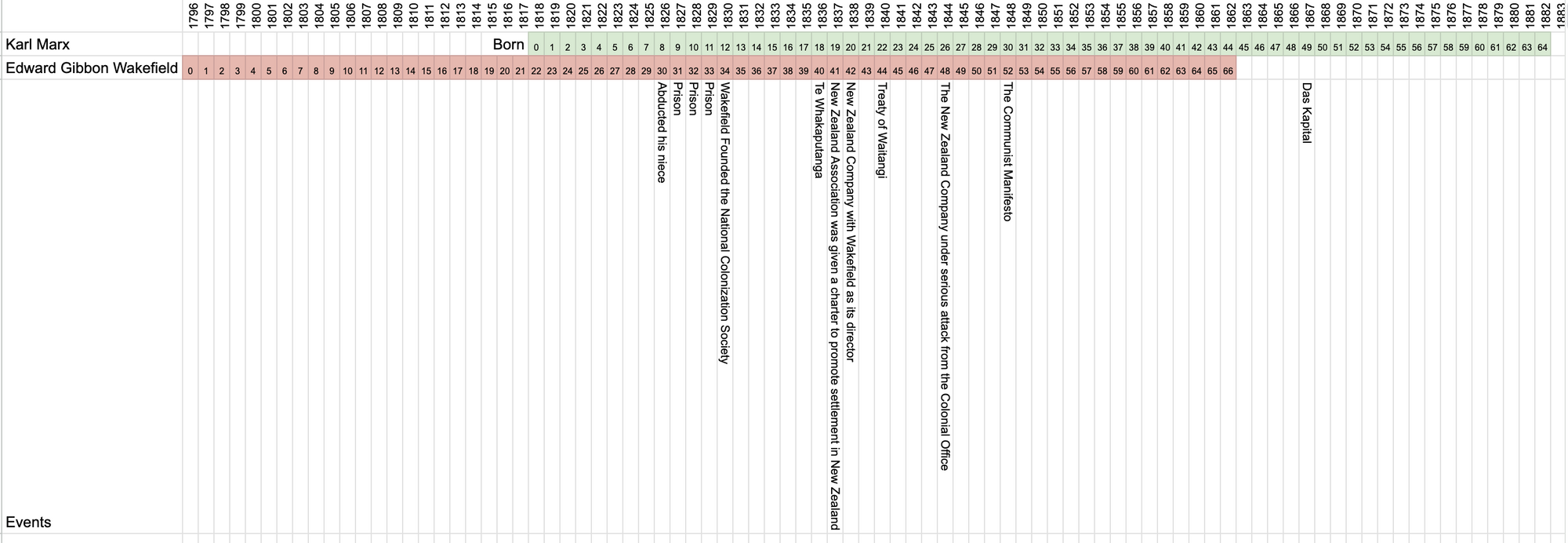Overlaps: Karl Marx & Edward Gibbon Wakefield
This short article looks at the life and efforts of Edward Gibbon Wakefield and asks if Karl Marx might have been influenced by his theories on systematic colonisation. Research for this was article was completed via Wikipedia. An AI tool called Merlin was used to summarise the articles.

This short article looks at the life and efforts of Edward Gibbon Wakefield and asks if Karl Marx might have been influenced by his theories on systematic colonisation. Research for this was article was completed via Wikipedia. An AI tool called Merlin was used to summarise the articles.
Please note, several discrepancies were found between the Wikipedia articles, such as the formation date and founding members of the 'National Colonisation Society', this article says that Wakefield was a 'founding member' , whereas this article says that (Wakefield) 'joined the' association. Please use your own critical analysis when reviewing.
Who is Karl Marx?
Karl Marx was a German philosopher, economist, historian, and journalist who lived from 1818 to 188312. He is best known for his work as a radical political theorist and socialist revolutionary, and for his collaboration with Friedrich Engels in publishing "The Communist Manifesto" in 184823. Marx's ideas about capitalism, socialism, and communism have had a significant impact on political and economic thought3. He also wrote "Das Kapital," which discussed the labor theory of value3. Marx was born in Trier, Germany, and spent much of his life in London3.

Who is Edward Gibbon Wakefield?
Edward Gibbon Wakefield (1796-1862) was a British colonial reformer and promoter who played a significant role in the establishment of the colonies of South Australia, New Zealand, and Canada123. He was also a member of the New Zealand Parliament2. Wakefield was born in London and worked as a secretary to the British minister in Turin, Italy, before becoming involved in colonial policy14. He was known for his theories on systematic colonization and was involved in the drafting of the Durham Report on Canadian colonial policy14. Wakefield was a controversial figure and was convicted of abduction in 18261.

What is the overlap between Karl Marx and Edward Gibbon Wakefield?
Karl Marx and Edward Gibbon Wakefield lived at the same time, shared London as a residence and were interested in the study of capitalism.

Summary from Merlin (a tool using GPT-4)
While Karl Marx did not specifically mention Edward Gibbon Wakefield in his works, it is important to understand the broader context of their respective ideas and theories to further analyze the relationship between their thoughts on colonization and capitalism.
Edward Gibbon Wakefield's theory of systematic colonization aimed to create well-structured and successful colonies by promoting a balance between laborers, artisans, and capital. Wakefield believed that the sale of land in small quantities at a sufficient price would encourage immigration and help establish economically viable settlements, ultimately benefiting both the colonizers and the colonized.
On the other hand, Karl Marx, a critic of capitalism and colonialism, argued that these systems led to the exploitation of labor and resources from colonized nations. According to Marx, colonization served as a means for capitalist nations to expand their markets and secure raw materials, which in turn, generated greater profits for the ruling capitalist class. As a result, Marx viewed colonialism as a mechanism for perpetuating inequality and furthering the interests of the bourgeoisie at the expense of the working class.
Considering their differing perspectives, it is possible that Marx would have criticized Wakefield's theories on colonization as an extension of capitalist exploitation. Wakefield's focus on land sales and the establishment of profitable colonies could be seen as aligning with the capitalist interests that Marx critiqued. Additionally, Wakefield's ideas may have been perceived as promoting the expansion of British imperialism, which Marx viewed as a driving force behind global inequality.
Summary
In conclusion, although Karl Marx did not directly address Edward Gibbon Wakefield's ideas on colonization, their respective theories on capitalism and colonialism suggest that Marx would likely have been critical of Wakefield's approach. Wakefield's systematic colonization theory, with its emphasis on land sales and the creation of economically viable settlements, could be interpreted as perpetuating the exploitative nature of colonialism and capitalism that Marx staunchly opposed.

